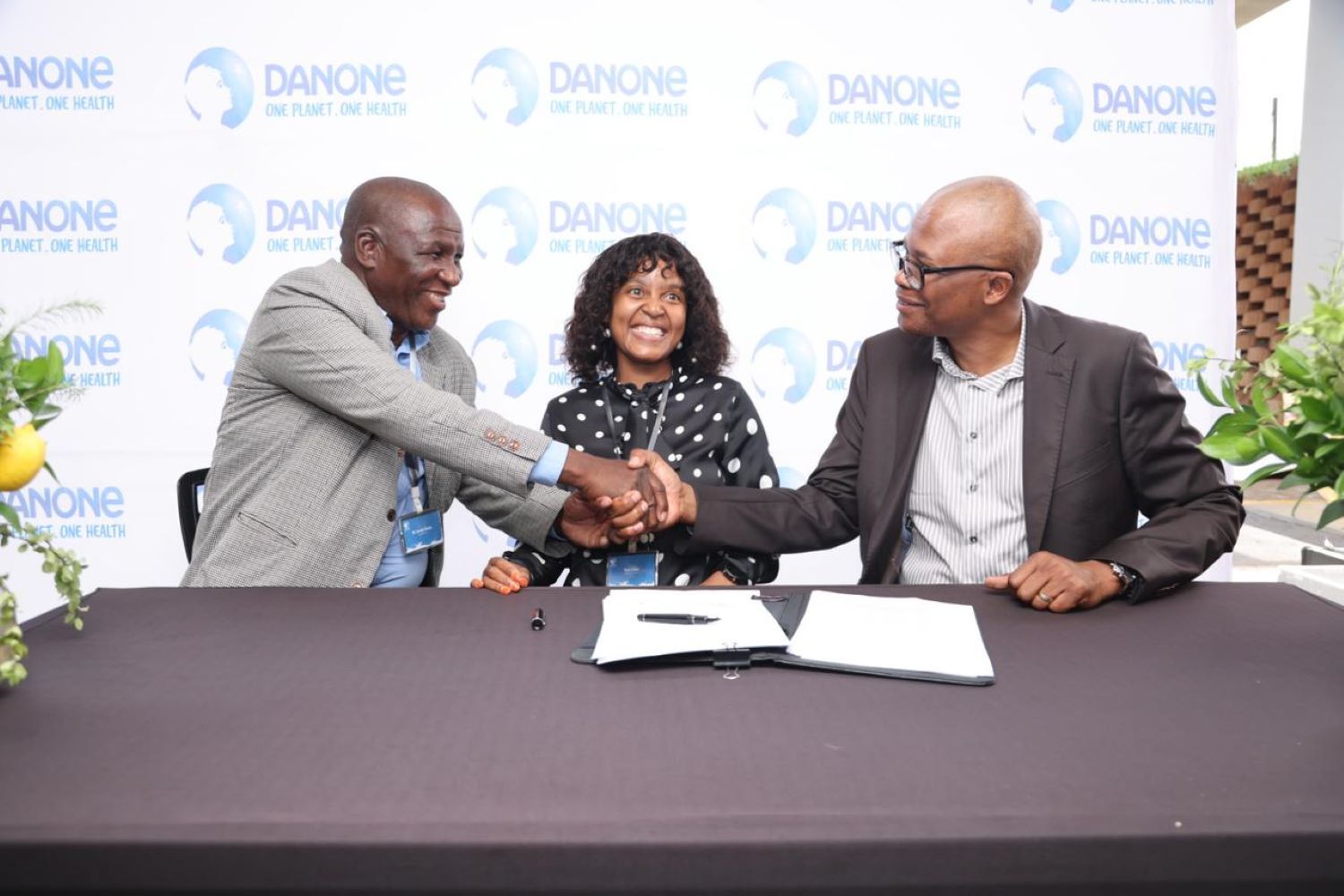SA has never really had a black-owned dairy farm large enough to supply producers like Danone. Until now...

Its official: Danone has one of its first black-owned dairy farm suppliers. Image: supplied.
Danone is celebrating its 50th Dual Purpose Anniversary by going on a mission to source ‘black milk’, committing to see to it that at least 10% of the milk it acquires for production comes from black farmers.
In order to achieve that, Danone has turned its attentions to the Ncora Dairy Farms in the Eastern Cape – a farming community that was ideally revitalised by a dairy aggregator, Amadlelo Agri.
But what is ‘black milk’?
‘Black milk’, according to Simpiwe Somdyala, CEO of Amadlelo Agri, is a phrase coined by Amadlelo workers and dairy farm residents, referring to milk produced by black-owned dairy farms – something the country does not seem to have many of in the great scale and stature needed to supply massive production houses like Danone with.
Somdyala explained that because commercial dairy farms have historically been dominated by white farmers, and barriers were specifically created to deter black farmers to develop beyond the small scale, there were no black-owned suppliers in the country to meet the need of companies like Danone with the measures of supply they required.
ALSO READ: Estina dairy farm: Whistleblower expects more threats to his life after Zwane’s court appearance
Emerging farmers
According to reports, experts estimate about 8 million hectares (20 million acres) of farmland have been transferred back to black owners since the end of apartheid, equal to about 8 to 10 percent of the land in white hands in 1994 – but only a third of a 30 percent target.
While it is one victory winning back their reclaimed land, many of these black farmers still have to face the fact that they are entering the agricultural space as emerging farmers and thereby struggle with access to markets.
At the company’s golden anniversary celebrations, Danone’s Operations Director for Southern Africa, Kid Nkantsu, said: “Mr Somdyala has penned that barriers to entry [in the dairy market] are high and potential entrants must have access to land suitable for commercial large-scale farming, livestock, investment capital, skills and latest technology to make headway.
NOW READ: Vrede dairy farm project was ‘a very good idea’, Zondo commission hears
“Limited or lack of access to these scarce resources has crushed the aspirations of many black farmers. I want to add to the list mentioned here, that emerging black farmers also struggle with access to markets. There are deliberate blockages in the way which must be dismantled if we are serious about the transformation of the South African economy to be more inclusive and developmental.”
And so, in its efforts to dismantle these blockages, Danone consulted with Amadlelo Agri, an organisation that has found ways to coordinate the combining of the small-scale dairy farms within the Ncora region, to facilitate a combined supply of raw milk to meet Danone’s 10% requirement.
The sharemilking model
The sharemilking model used by Amadlelo was first pioneered by New Zealand, where partnerships are forged between sharemilkers and landowner. In the year 2008, Amadlelo invested in rural communities by introducing and implementing their sharemilking dairy model where partnerships are forged between sharemilkers and landowners in the areas of Alice, Middledrift, Whittlesea, Keiskammahoek and Ncora.
As a result of this, Amadlelo now has access of over 2,2ha of irrigated land with 10 000 cows that produce 28 million litres of [black] milk per annum. This partnership has injected R869 million into communities in the form of wages, profits and land rentals.
A worthwhile partnership
This was exactly what Danone needed in order to achieve its commitment to elevating black farmers. On 25 October 2022, Danone signed an agreement with Ncora Dairy pledging to the upliftment of the Eastern Cape community.
ALSO READ: Two classrooms to be built with bricks made from used yoghurt tubs
The partnership is worth R75 million per annum with 2 400 jersey, crossbreed, milking cows producing approximately 10.5 million litres of milk. More than this, however, this deal will indirectly benefit over 1 200 community members living within the vicinity of the farm, with approximately 35 individuals from the community employed on the farm itself.
Ncora Dairy is now officially one of the first black-owned dairy farms to become a supplier of Danone.





